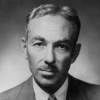E. B. White

E. B. White
Elwyn Brooks "E. B." White was an American writer. He was a contributor to The New Yorker magazine and a co-author of the English language style guide The Elements of Style, which is commonly known as "Strunk & White". He also wrote books for children, including Stuart Little, Charlotte's Web, and The Trumpet of the Swan. Charlotte's Web was voted the top children's novel in a 2012 survey of School Library Journal readers, an accomplishment repeated in earlier surveys...
NationalityAmerican
ProfessionWriter
Date of Birth11 July 1899
CountryUnited States of America
new york provides not only a continuing excitation but also a spectacle that is continuing.
I am reminded of the advice of my neighbor. "Never worry about your heart till it stops beating.
Wilbur never forgot Charlotte. Although he loved her children and grandchildren dearly, none of the new spiders ever quite took her place in his heart. She was in a class by herself. It is not often that someone comes along who is a true friend and a good writer. Charlotte was both.
Semi-colons only prove that the author has been to college.
English usage is sometimes more than mere taste, judgment and education - sometimes it's sheer luck, like getting across the street.
Advice to young writers wo want to get ahead without any annoying delays: don't write about Man, write about a man.
To achieve style, begin by affecting none.
The first day of spring was once the time for taking the young virgins into the fields, there in dalliance to set an example in fertility for nature to follow. Now we just set the clocks an hour ahead and change the oil in the crankcase.
It is deeply satisfying to win a prize in front of a lot of people.
There is nothing harder to estimate than a writer's time, nothing harder to keep track of. There are moments—moments of sustained creation—when his time is fairly valuable; and there are hours and hours when a writer's time isn't worth the paper he is not writing anything on.
Before the seed there comes the thought of bloom.
A writer should concern himself with whatever absorbs his fancy, stirs his heart, and unlimbers his typewriter. ... A writer has the duty to be good, not lousy: true, not false; lively, not dull; accurate, not full of error. He should tend to lift people up, not lower them down.
I am always humbled by the infite ingenuity of the Lord, who can make a red barn cast a blue shadow.
Writers do not merely reflect and interpret life, they inform and shape life.